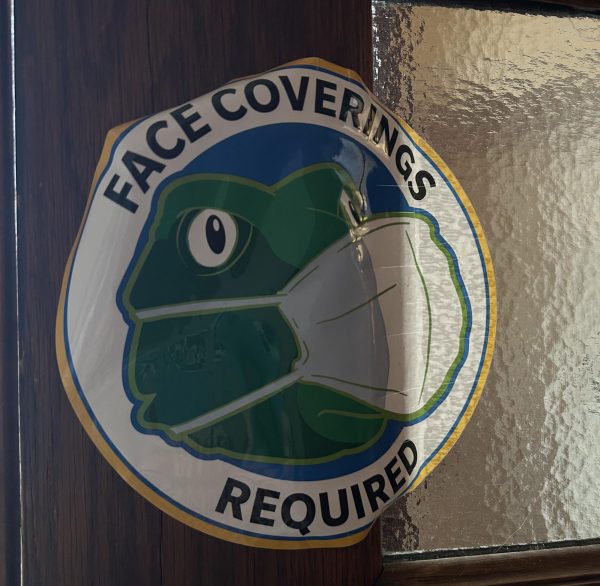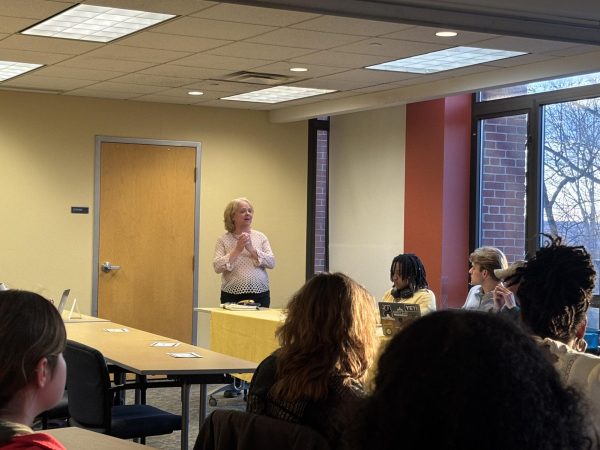Crawford County revises public comment policy
The opportunity to provide feedback on the proposed revision to the Public Participation Resolution ended March 3, 2015. This Resolution has been constructed in order to maintain order in Business Meetings with the Crawford County Board of Commissioners. These meetings are held on the first and third Thursday of every month at 9:30 a.m. in the Crawford County Courthouse Assembly Room.
“The revised policy will make the meetings more efficient,” said County Solicitor Keith Button.
Mark Lessig, County Administrator, added that the revised policy would also make meetings more effective.
“Pennsylvania has an act that is part of the larger law called the Pennsylvania Sunshine Act and it requires public bodies to provide reasonable opportunities for citizens to speak,” said Lessig.
He said that allowing for public comment is required by law, and because of that, freedom of speech cannot be breached.
“You don’t have a choice, that’s what it requires, but since it was created by public officials and since it has been tried in courts and streamlined through court cases by public officials, nothing in the law prevents an elected body from controlling the conduct of their meeting and in focusing the meeting on agenda items.”
The Sunshine Act states that, “The General Assembly finds that the right of the public to be present at all meetings of agencies and to witness the deliberation, policy formulation and decision making of agencies is vital to the enhancement and proper functioning of the democratic process and that secrecy in public affairs undermines the faith of the public in government and the public’s effectiveness in fulfilling its role in a democratic society.”
The County Administrator added that public comment has turned on many occasions, into conversations which the board has no jurisdiction. Lessig said that meetings when opened to public comment touched on a multitude of topics that the Board of Commissioners has no jurisdiction over such as elected officials, Meadville city police, how the district attorney prosecutes cases and other issues.
“The biggest change is having public comment in the beginning. Every meeting it seems to be thirty minutes of dialogue on issues we do not have jurisdiction,” said Commissioner Francis Weiderspahn.
Weiderspahn said that although public opinion is important, many of the issues that come up are not related to the Board of Commissioners which becomes problematic in holding effective meetings that serve both the public and the Board’s needs.
The resolution specifically tackles these issues by stating that the Board of Commissioners will not allow a speaker to address subject matter discussed at previous meetings unless the subject matter relates to future action by the board or comments about ongoing criminal investigations, political propaganda or a speaker to address or question a commissioner individually.
“We are available any other time for other subjects they would want to talk about,” said Weiderspahn.
Despite the fact that this resolution is created with the intention of producing more efficient meetings, The Board of Commissioners made it clear that they do not want to deter the public from asking community-related questions.
“It is a matter of addressing your public comment to the board or agency that actually has the authority to address your problem, if you aren’t sure who that is, you can ask questions and find out who that is,” said Button.
According to Lessig, the resolution is meant to ensure that people understand what resources are available to them and know how to find the appropriate person to ask for assistance rather than bringing personal conflicts to the forefront of meetings of the Board of Commissioners.
“Anybody can call them and ask them that specific question. They are members of the county as well and they know folks and they can direct them to the proper forum, and do,” said Lessig.
Members of the board said that they are happy to answer questions and connect community members to proper resources over the phone or during Work Session. Commissioners hold Work Sessions every Tuesday unless otherwise noted.
According to the current Crawford County Board of Commissioners Public Comment Policy, “These [sessions] can be informal in nature and address any range of comment or concern with an item of business on the official agenda, or an item of general comment as this may relate to county businesses, policy, practices or the like.”
“Some people choose to do it at the public forum rather than meet with us one on one,” said Weiderspahn.
Although the current and revised Public Comment Policy state that non-residents will not be allowed to comment at the Regular Meeting, students attending Allegheny and other Crawford County schools and universities are welcome to bring relevant matters to the board.
“The process for public comment between the current resolution and the proposed policy is identical,” said Lessig.
He also explained the standard procedure by which a claim is processed.
“The chief clerk is notified of the person’s intent and then the relevant topic on which the person wants to speak. I can tell you right now that if it was an Allegheny College student that had a relevant reason to speak, I would see no issue allowing that to occur,” said Lessig.
Although Button mentioned that if a group of students have a common interest, they would not be turned down by the board but rather required to choose a spokesperson who is a resident to speak on their behalf.
Lessig explained that he has received relevant feedback on the proposed changes.
“The feedback that I’ve received has been relevant to the proposed changes. It did not involve any perception of a lack of the ability to speak, to comment publicly at a public commissioner’s meeting,” said Lessig.









